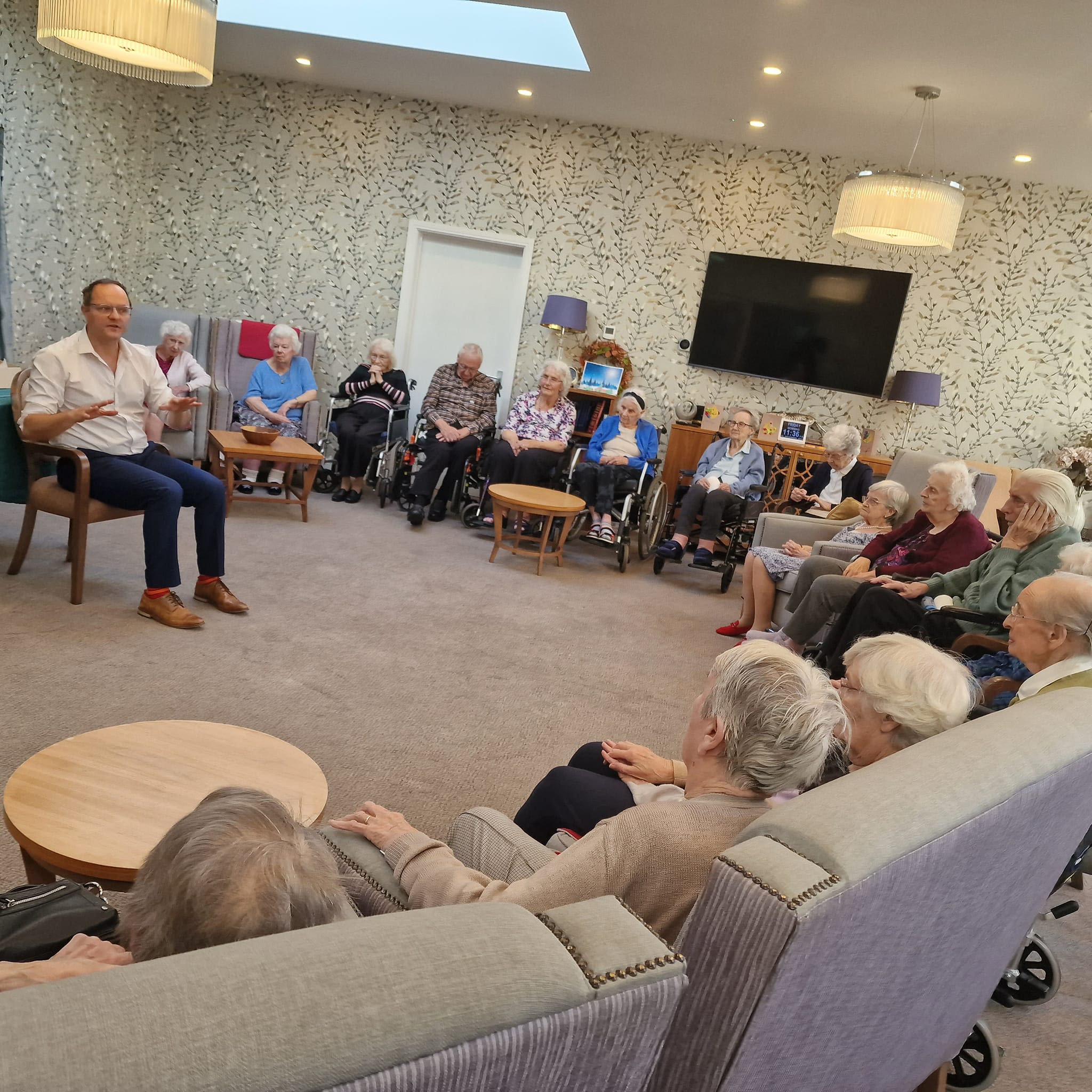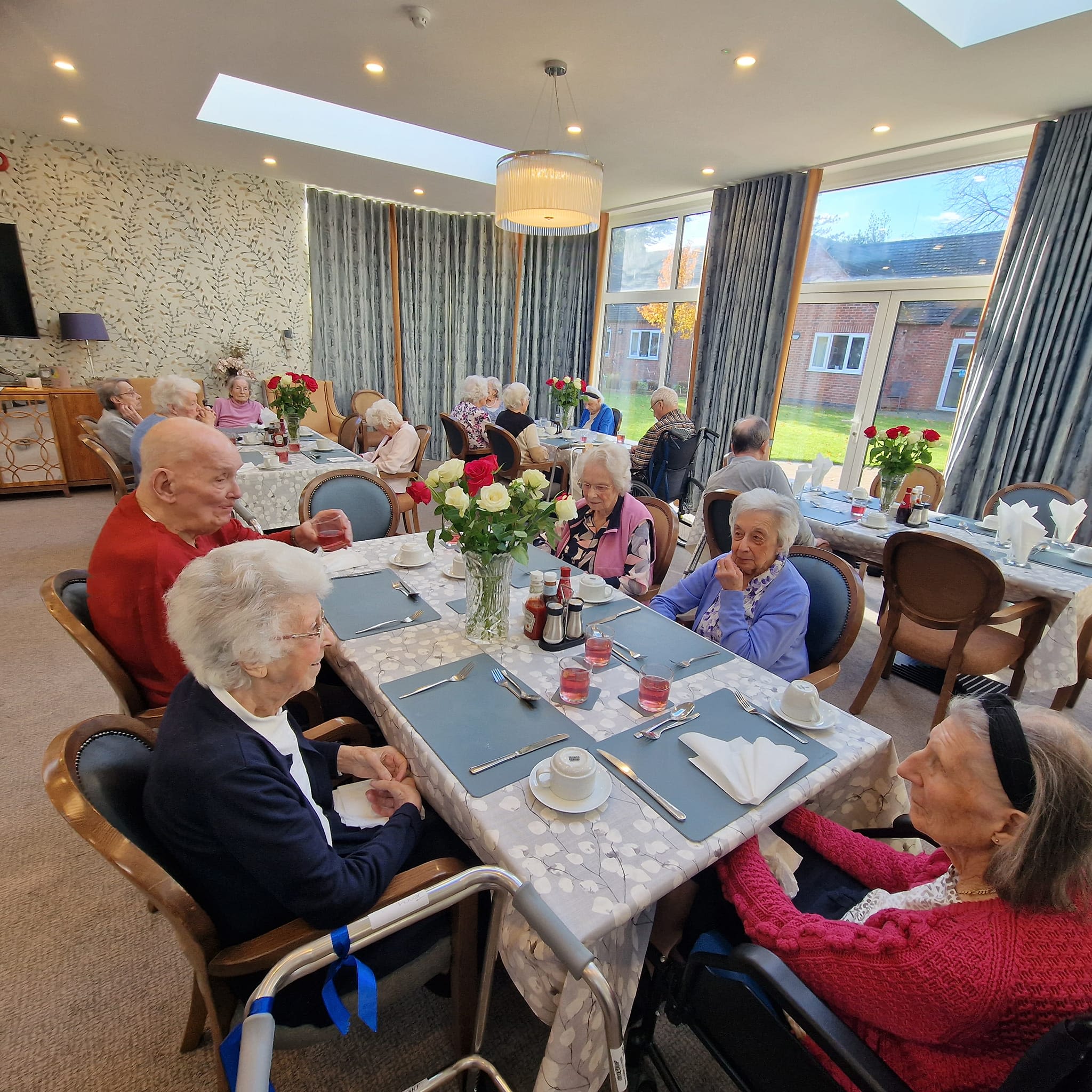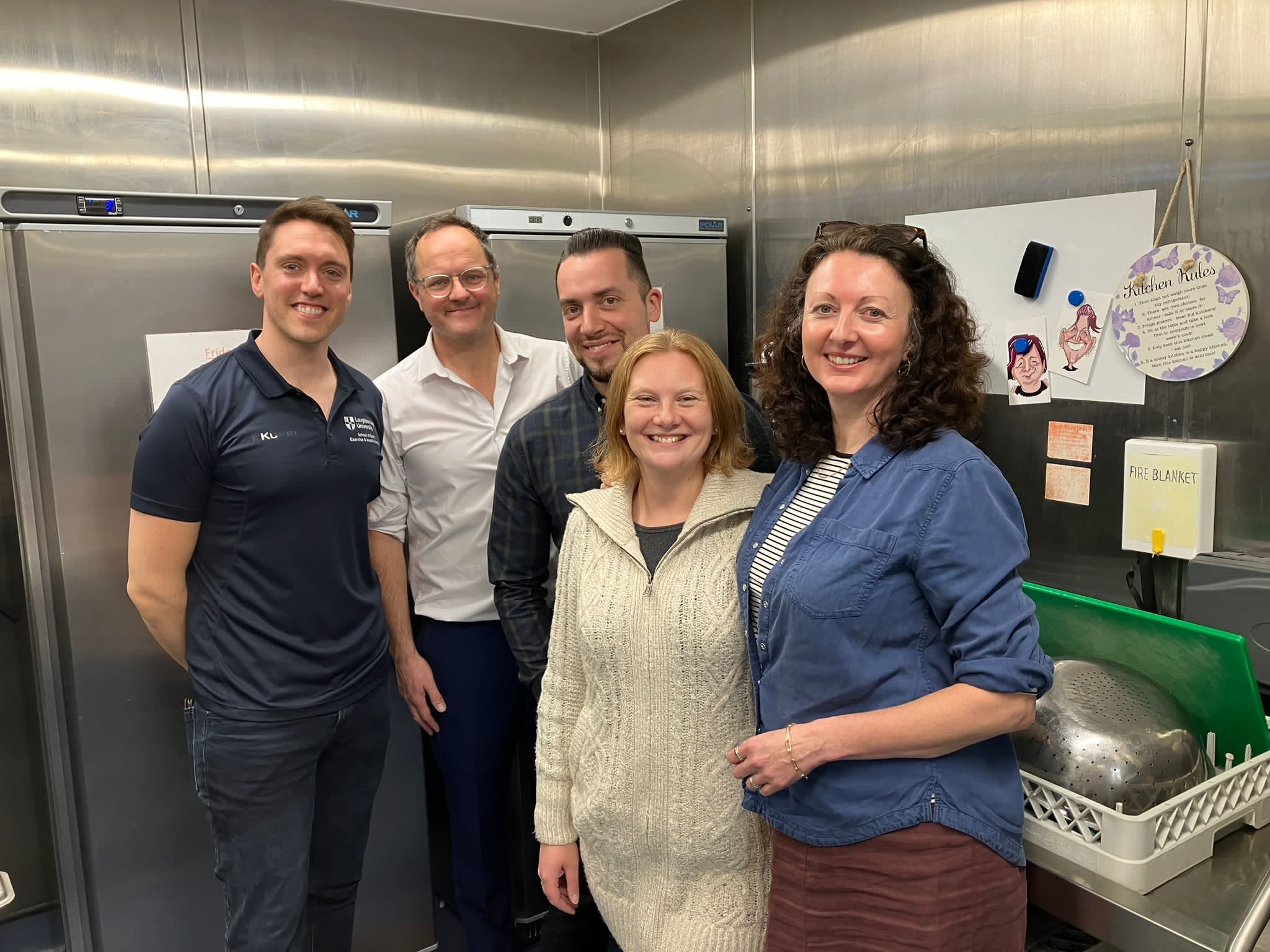CURTAIN – therapeutic creativity
Using Reminiscence Theatre to encourage older people to rediscover their love of food and enjoy better health.
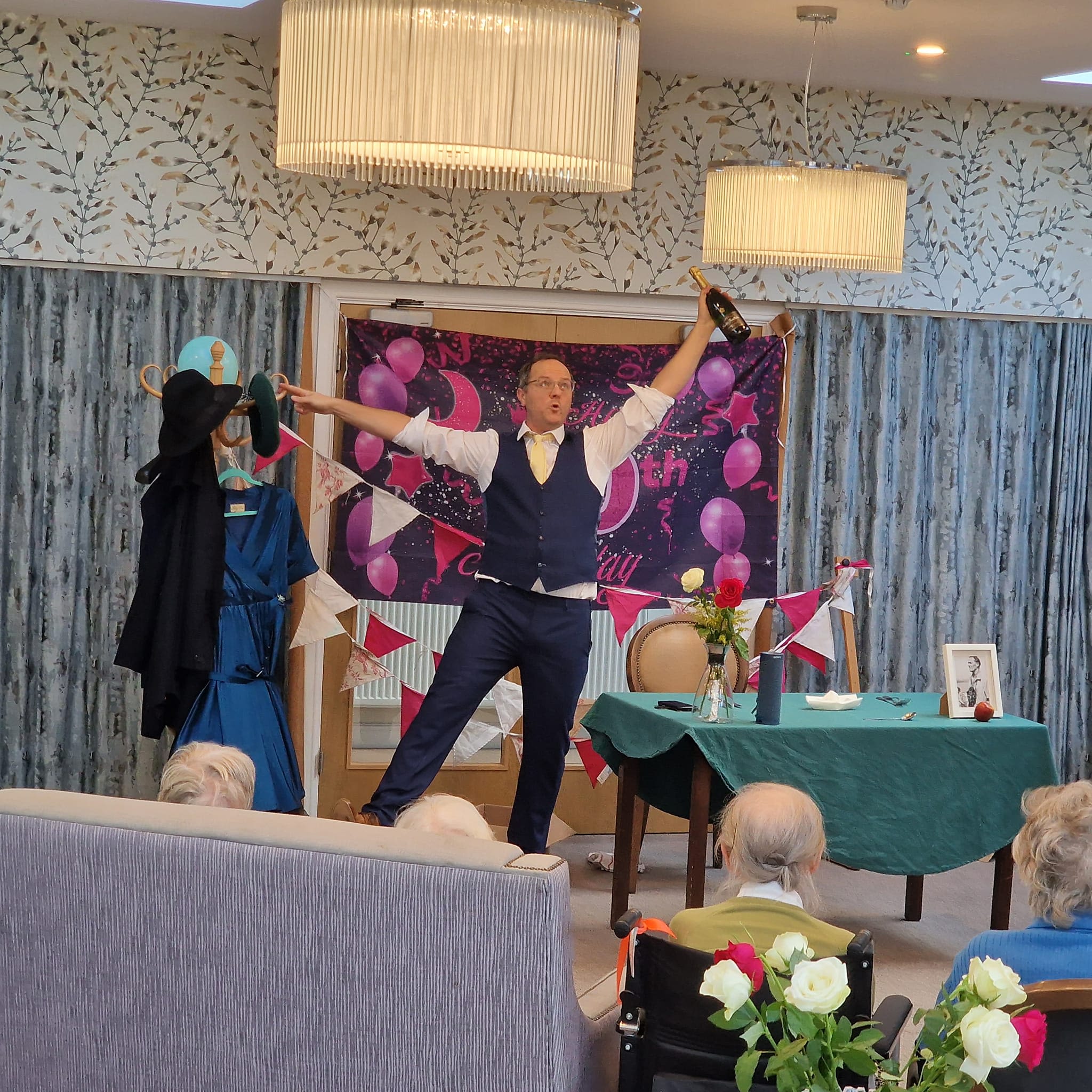
One in 10 people over the age of 65 in the UK are malnourished or are at risk of malnutrition (Age UK).
This means that more than one million older people are dramatically underweight – making them more vulnerable to infections, illness and falls.
As we all know, a healthy balanced diet can help improve our quality of life. So, it’s important to encourage older people to eat well.
A new project led by three Loughborough researchers is looking at a novel way to encourage eating among elderly care-home residents. Their unique approach is the first to use Reminiscence Theatre in this way – and combine it with the methodologies of behavioural science.
The CURTAIN team - David Maidment, Chris McLeod and Catherine Rees
The CURTAIN team - David Maidment, Chris McLeod and Catherine Rees
What is Reminiscence Theatre?
“Over the last 25 years, there has been a considerable growth in
reminiscence activity with older people. Its benefits, in terms of health and
social well-being, have become more and more valued.”
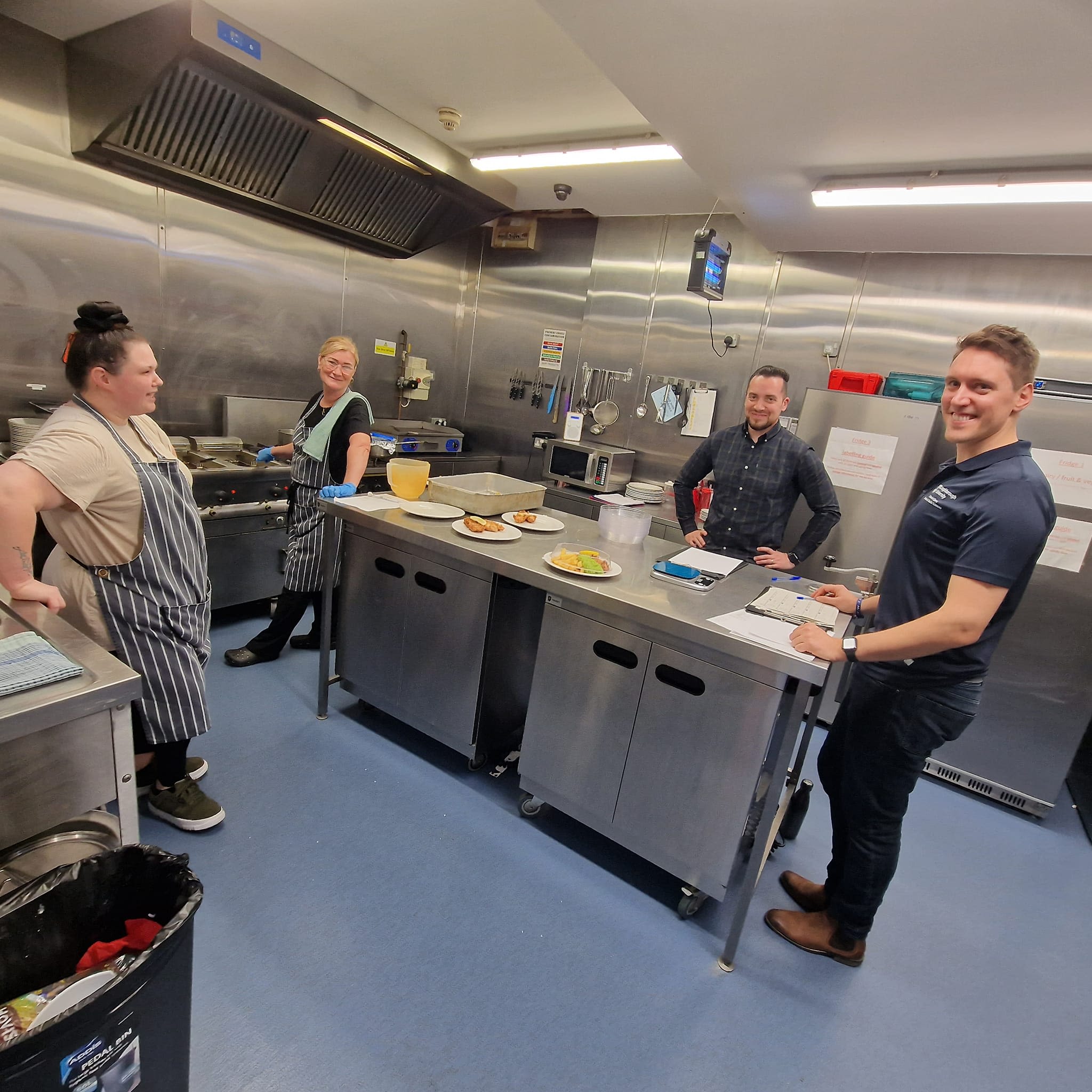
Pioneered by Pam Schweitzer and Age Exchange, Reminiscence Theatre is an applied theatre technique that draws on the life stories and memories of older people to create scripted shows which are then performed for – and sometimes by – them.
The approach seems straightforward enough – but can be very powerful.
In fact, reminiscence therapies of this kind have been shown to improve cognition, enhance mood, boost health and well-being, and nurture social circles.
Curtain up for a new approach
Clinical Use of Reminiscence Theatre with older Adults in care to Improve Nutrition (CURTAIN)
Since its inception in the early 1980s, Reminiscence Theatre has been widely used to support the health and wellbeing of older adults, both in the UK and overseas.
However, the Loughborough project, CURTAIN, will be the first to use it in care-homes as a way to improve nutrition and encourage healthy eating behaviours in older people. Its use of scientific methods and data to analyse the effectiveness of an arts-based intervention is also unique.
Funded by the Rosetrees Trust and Stoneygate Trust, the initial 12-month project launched in March 2023. It is exploring the feasibility and acceptability of the approach to the participants and staff at two care-homes – Lonsdale Mews (Quorn) and Cedar House (Rothley).
The multi-disciplinary CURTAIN team comprises three Loughborough academics – Chris McLeod, Catherine Rees and David Maidment. Their expertise spans nutrition, public health, psychology, behavioural science, and the dramatic arts.
The care-home residents and staff as well as two professional theatre practitioners bring a wealth of knowledge and skills that complement and complete the CURTAIN cast.
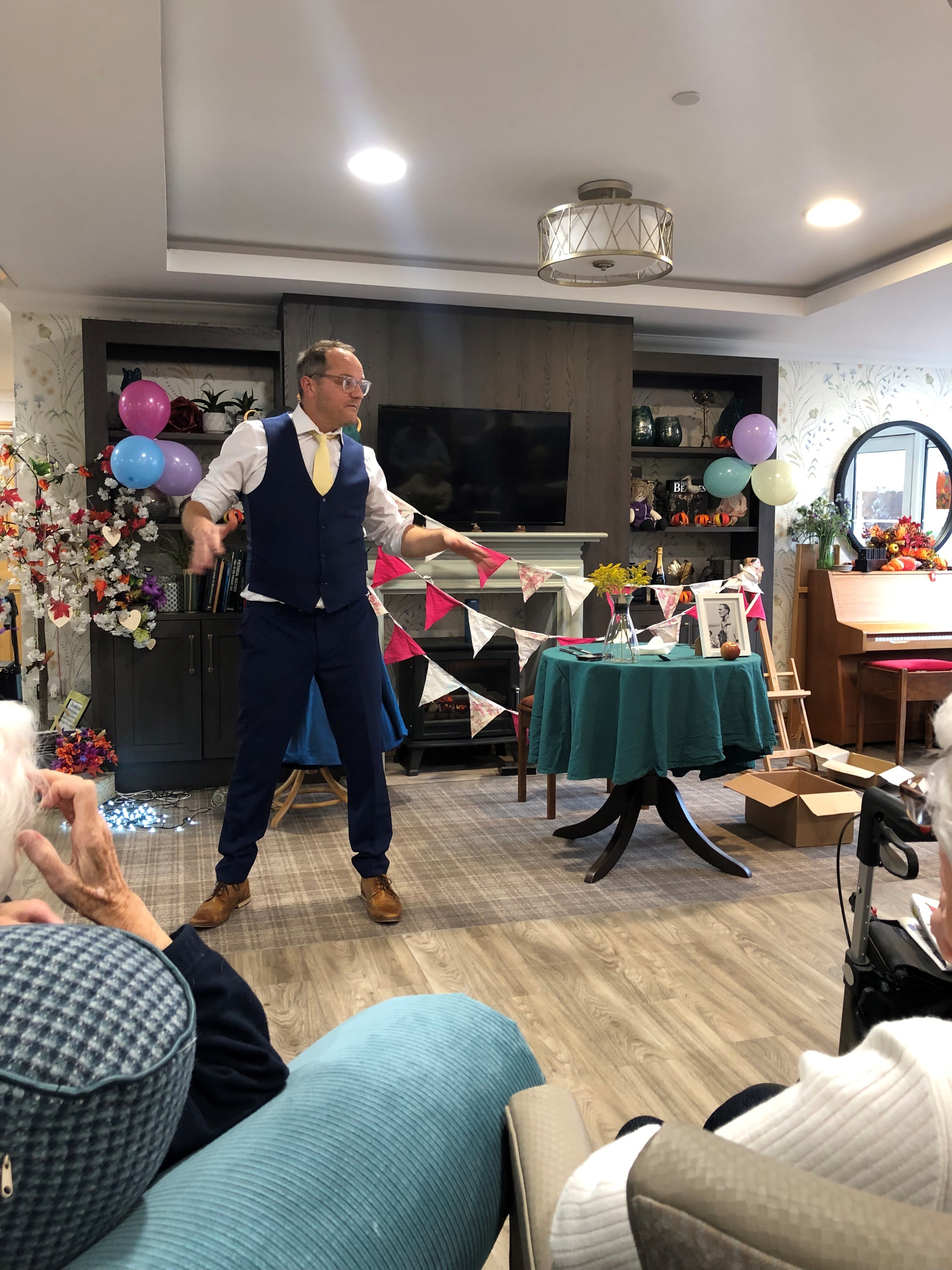
The five stages of CURTAIN
“Reminiscence Theatre is about utilising the power of real-life stories and memories to create a positive reaction."
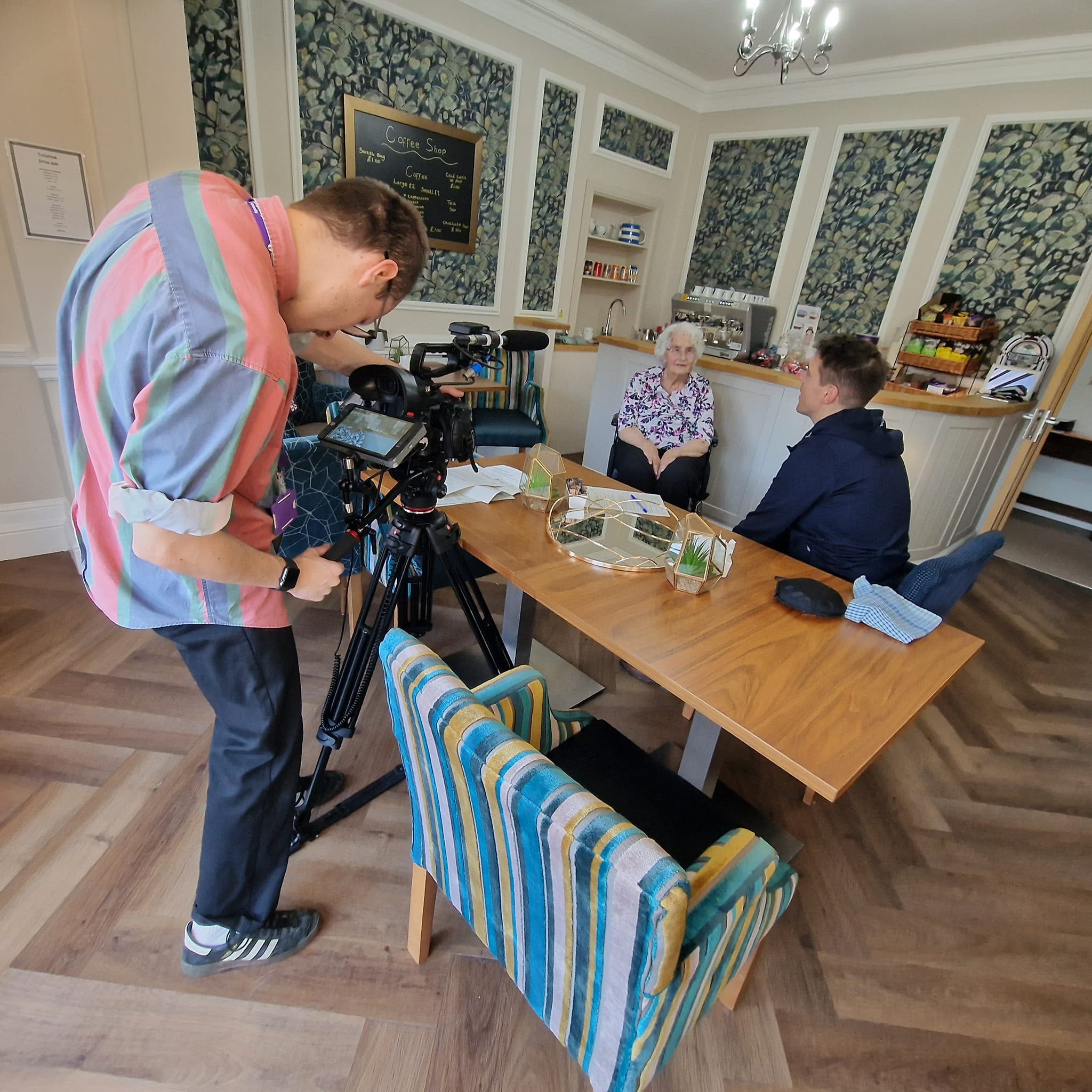
The research team have adopted a five-stage approach to delivering CURTAIN:
STAGE 1 – Reminiscing and collecting stories
The team visited the two care-homes and led guided conversations with the residents about positive food memories including special celebrations like birthday parties, weddings, religious festivities, and street parties marking royal events and the end of WW2.
The participants also shared experiences around rationing; who had access to the kitchen and eating patterns when they were a child; and the importance of homegrown produce and homemade foods before mass-produced foodstuffs.
STAGE 2 – Crafting the performance
The theatre practitioners – Stephanie Dale and Jake Oldershaw – created an interactive performance drawing on the residents’ collected memories and stories.
STAGE 3 – Showtime!
The performance was delivered in both care-homes. Afterwards, the team chatted with the residents and collected data about their enjoyment of the show and how hungry they were. Lunch was served.
Each resident’s plate was weighed as it left the kitchen and on its return to measure how heartily the meal was received. Interviews followed the meal to see how much they had enjoyed it.
STAGE 4 – Comparative data collection
A week later, the team returned – this time following a “regular” morning activity such as a craft or exercise session. Again, qualitative data was collected from the residents and their dinner plates were weighed, pre- and post-meal.
STAGE 5 – Data analysis
The collected data has been analysed to measure the intervention’s positive impact on the residents’ appetite and eating habits. The residents’ and staff’s acceptance and enjoyment of the activity were also studied.
Marrying art and science
“CURTAIN marries the seemingly disparate fields of art and science.
"The boundary between the two is underexplored and offers an exciting, far-reaching opportunity to deliver an array of health benefits.”
The researchers believe that behavioural science and applied theatre are pefect partners – ideally suited to ensure CURTAIN’s success.
David Maidment explains: “Behavioural science provides a comprehensive framework for understanding people’s motivation and decision-making. Its well-established evidence-based approaches allow you to study and – crucially – influence behaviour change.
“By integrating these methods into our exploration of applied theatre’s potential impact, we hope to create an intervention – based on rigorous research and empirical evidence – that has a positive influence on the health of our elderly participants."
Catherine Rees continues: “The synergies between theatre scholarship and behavioural science are really powerful.
“Theatre provides a unique platform for experiential learning and engagement which can be harnessed to share important messages – in our case, around food and eating – in a compelling, enjoyable and relatable manner.
“Behavioural science enriches our understanding of how applied theatre works while helping us to craft and evaluate an approach that will enhance wellbeing among the UK’s older population.”

Looking forward
The research team have analysed the project data – and it tells a very positive story.
The care-home residents thoroughly enjoyed CURTAIN’s opportunities to reminisce and share their stories – and loved the resultant performance. What’s more, preliminary findings suggest that CURTAIN has strong potential to improve participants’ appetite and energy intake.
The data around how best to deliver CURTAIN clearly suggest that a toolkit – rather than engaging professional theatre practitioners – is the best way forward. This approach would ensure the sustainability of the intervention by making it affordable for individual care-homes to implement and supporting roll-out at a national level.
Therefore, a research grant application is currently in progress to explore the development and evaluation of the toolkit.
The researchers’ goal is to create something which complies with the Medical Research Council’s guidelines that care-home staff can use to implement CURTAIN without the need of expert input.
They also want to explore how CURTAIN can be implemented in a wider range of contexts – including those specialising in the care of people living with dementia and nursing care homes.
Ultimately, they’d like CURTAIN to contribute to future national guidance – produced by NHS England and the Department of Health and Social Care – about the nutrition of older adults living in care-homes.
Catherine Rees and Chris McLeod are working on a book to be published by Routledge. Applied Theatre for Health and Wellbeing – which will feature CURTAIN and its findings – is due to be published in 2026.
Chris McLeod is enthusiastic about CURTAIN’s success to date: “As the son of a musical theatre actress, I’ve always had a great passion for the arts. After choosing a scientific career myself, I’m so happy to be a part of this incredibly exciting project.
“I feel privileged to be working with such a fantastic team to harness the combined power of science and the arts to address some of the most pressing health issues we face in the UK today”.
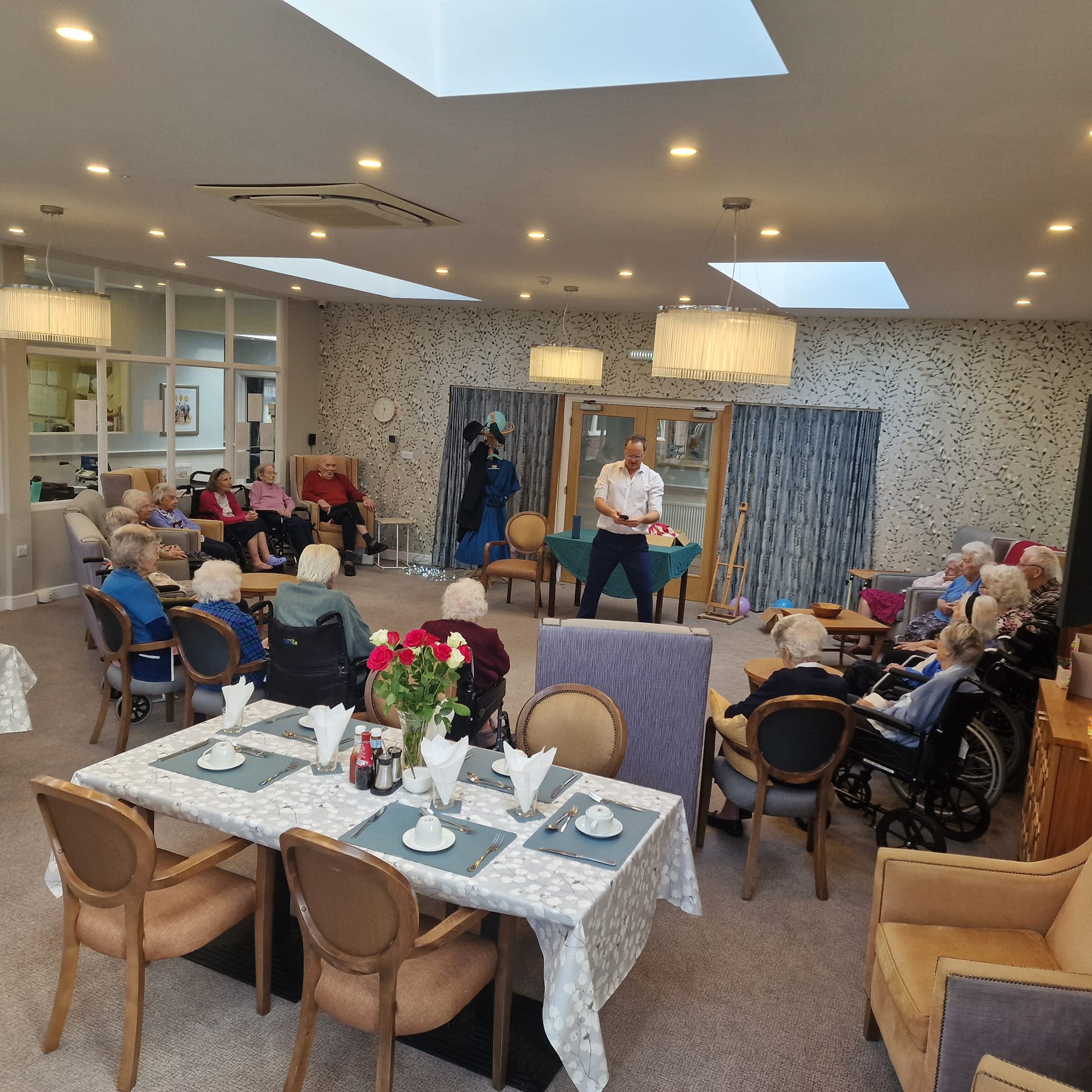
Listen to the Experts in Health podcast
Dr Catherine Rees, Reader in Drama at Loughborough University, discusses the various ways that applied theatre and the arts are making an unexpected but significant impact in improving the public’s health and wellbeing.
Share this page


